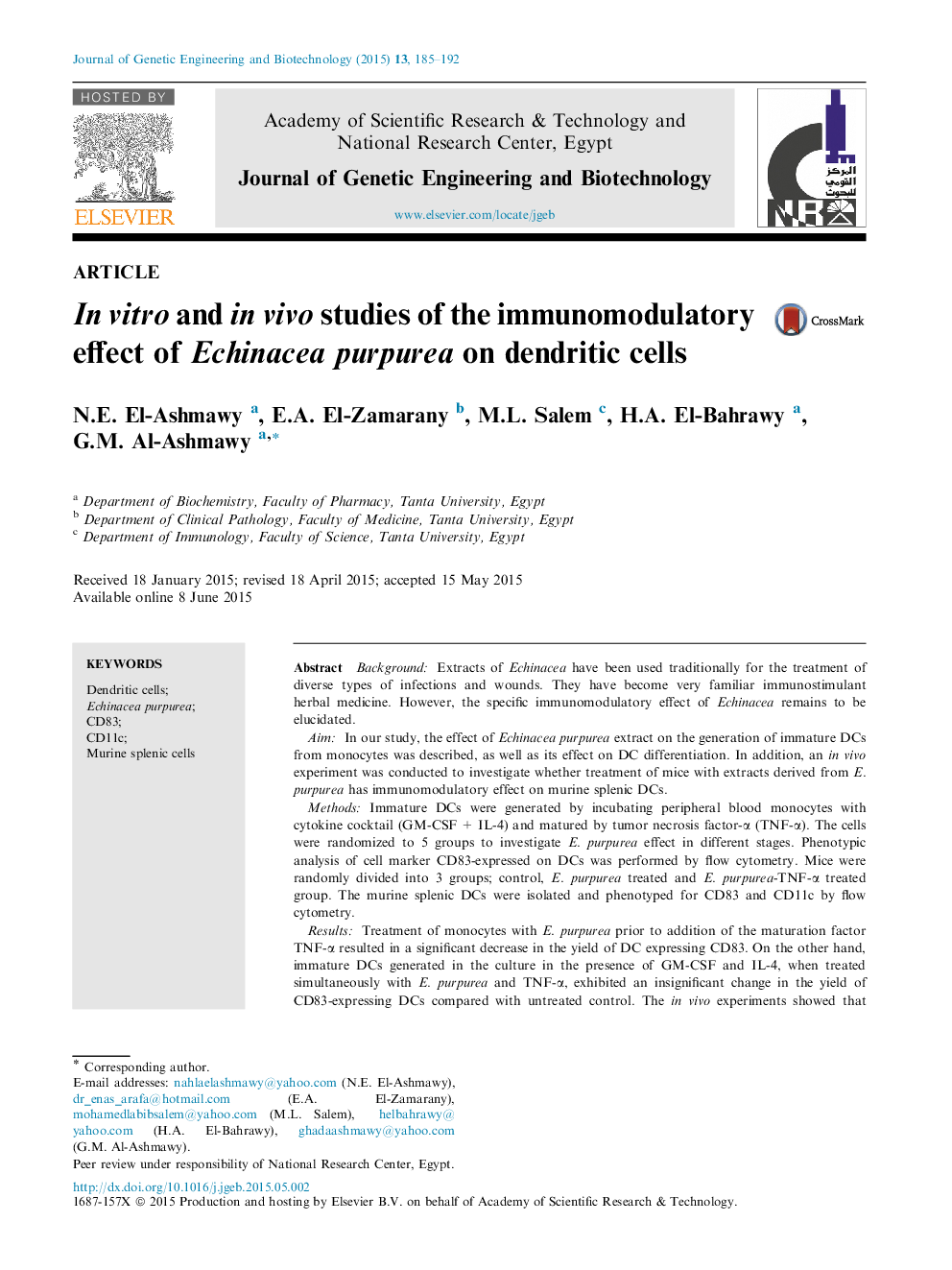| Article ID | Journal | Published Year | Pages | File Type |
|---|---|---|---|---|
| 2087867 | Journal of Genetic Engineering and Biotechnology | 2015 | 8 Pages |
BackgroundExtracts of Echinacea have been used traditionally for the treatment of diverse types of infections and wounds. They have become very familiar immunostimulant herbal medicine. However, the specific immunomodulatory effect of Echinacea remains to be elucidated.AimIn our study, the effect of Echinacea purpurea extract on the generation of immature DCs from monocytes was described, as well as its effect on DC differentiation. In addition, an in vivo experiment was conducted to investigate whether treatment of mice with extracts derived from E. purpurea has immunomodulatory effect on murine splenic DCs.MethodsImmature DCs were generated by incubating peripheral blood monocytes with cytokine cocktail (GM-CSF + IL-4) and matured by tumor necrosis factor-α (TNF-α). The cells were randomized to 5 groups to investigate E. purpurea effect in different stages. Phenotypic analysis of cell marker CD83-expressed on DCs was performed by flow cytometry. Mice were randomly divided into 3 groups; control, E. purpurea treated and E. purpurea-TNF-α treated group. The murine splenic DCs were isolated and phenotyped for CD83 and CD11c by flow cytometry.ResultsTreatment of monocytes with E. purpurea prior to addition of the maturation factor TNF-α resulted in a significant decrease in the yield of DC expressing CD83. On the other hand, immature DCs generated in the culture in the presence of GM-CSF and IL-4, when treated simultaneously with E. purpurea and TNF-α, exhibited an insignificant change in the yield of CD83-expressing DCs compared with untreated control. The in vivo experiments showed that splenic DCs obtained from mice treated with E. purpurea with or without TNF-α did not exhibit significant changes in CD83 or CD11c compared with those obtained from control mice.ConclusionOur findings suggest that the immunomodulatory mechanisms of E. purpurea impact generation fate of DCs rather than differentiation stages. The results obtained in the in vivo study utilizing murine splenic DCs supported those observed in vitro.
